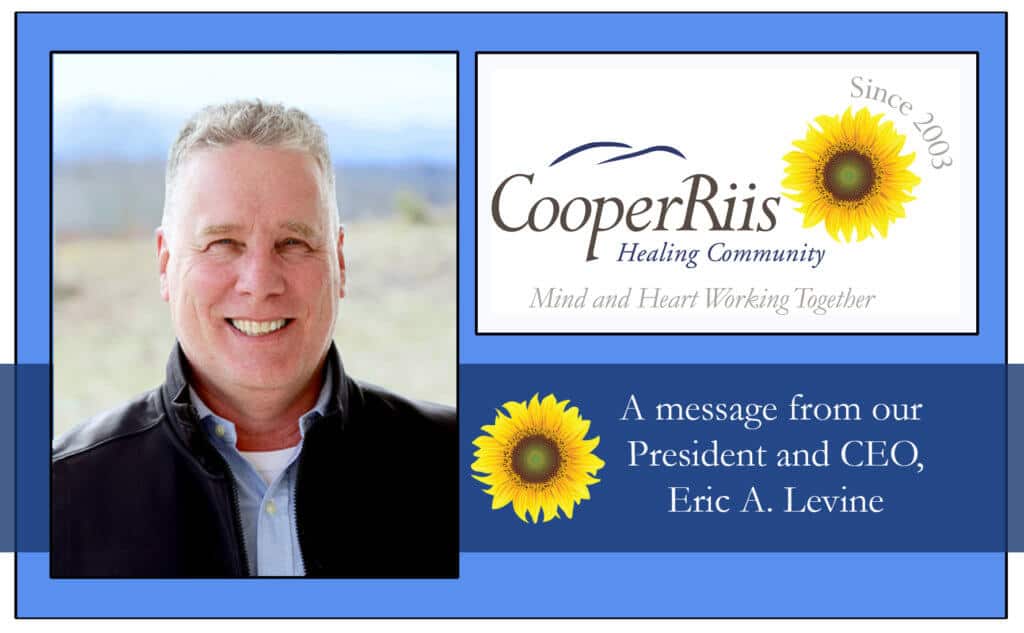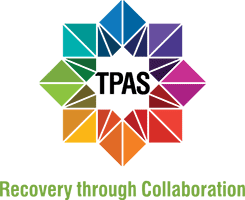Negative reviews; the problem is what to do with them? Those of us in the “census-driven” business are always worried about how many beds are full on any given day. The adage that says that in the treatment business, there is no treatment without interaction is true, so when a negative review comes to our attention on social media, we all take a deep breath and hope it is not the one piece of feedback that will turn people off from what we do.
At CooperRiis, since 2003, we have served almost 3,000 individuals struggling with mental health challenges. The vast majority have been pleased and appreciative of our services. Occasionally though, people leave angry or dissatisfied with their experience. We are in the people and relationship business, specializing in complicated situations, and sometimes what we do does not work.
Typical reasons for dissatisfaction include:
Disagreements with the psychiatrist over medications
Our psychiatrists are very careful when prescribing medications. Titration, side effects, medication history, and the impact of multiple medications they are on. Regardless, disagreement over medications can lead to hard feelings. Sometimes, family members believe that a resident should be taking a specific medication, and the resident disagrees with all considerations. Our psychiatrists work collaboratively with our residents, and sometimes, the medication plan does not fit with the family’s vision, leading to dissatisfaction.
Behavior
We are a healing community which means the community’s cohesiveness and safety (both physical and emotional) are paramount. It is important for members of our community to abide by a set of community agreements. We expect people to treat one another with respect, care, and kindness. There have been occasions when that has not occurred, and despite efforts to intervene in a supportive way, we have to ask someone to leave. This always creates upset, and a negative Google or Facebook review typically follows.
Outcomes
Sometimes, people enter treatment looking for a cure. Mental illness does not go away, but given the right treatment experience, we firmly believe recovery can happen. Recovery in the mental health world is an individually determined outcome. There is a difference between Recovery and Cure. If someone enters our program and their symptoms (i.e. depression, anxiety, intrusive thoughts) are at a 9/10 with 10 being the worst and most painful, and they leave at a 3 or a 4 and stay at that level for 6 months to a year later, then I would say they are in Recovery, which is an active and dynamic process, requiring ongoing work. The hope is that they would not need to go to the hospital or another treatment center down the road, but that possibility does exist.
The typical recovery journey, in my experience, at least from the standpoint of someone’s situation, is so severe that they require residential treatment to feel safe, stable, and participate in life is about 18 months (through CooperRiis’ full continuum of care offered). This does not include the work that needs to happen after “stepping down”. Sometimes, the resident or the family will be frustrated that progress is not happening quickly enough and will feel like they have invested too much money for too little benefit. I get it. Private treatment is extremely expensive, and people want to see tangible progress. Unfortunately, recovery is not linear, and it takes time.
Communication
We work with adults, meaning our residents (unless guardianship or a power of attorney exists) can choose how involved family members are in their recovery process. Sometimes, residents work hard to individuate and wish not to have CooperRiis communicating with family or somehow restrict involvement. We understand this is very difficult and often not ideal for families. This dynamic can be complicated when families are paying for treatment; they feel that since they are spending the money for treatment, they should be privy to what is happening. We do support residents in conversations about opening lines of communication with family members. Still, ultimately, it is their decision how much and how information is shared, which can lead to difficulty between the recovery team and family.
Responding and Privacy
What can we do when we get a negative review? We are in a bind because we can’t directly respond to the accusation. There are often HIPPA concerns that prevent a transparent and public back and forth. In my experience, these back-and-forth discussions only inflame the issues and serve no one. I am always open to a private conversation,, and in our response to the comments, we offer the opportunity to talk. People rarely take me up on it.
Commitment to Recovery
We accept the critical feedback and are open to hearing the hard stuff. I feel confident and proud of the work we do here. This business is tough, and while we can’t “make” people get better, we know that the CooperRiis staff is a caring, dedicated, and hard-working group of people committed to each resident’s recovery process.
Thank you for your time and consideration on this challenging topic.
-Eric A. Levine, Ed.D.









